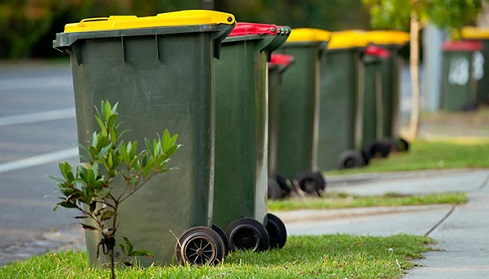Environment Ministers have agreed to a suite of actions to meet National Waste Policy Action Plan targets, included nationally consistent municipal waste collections.
This week’s Environment Ministers Meeting (EMM) also agreed in principle to support a roll-out of Food Organics and Garden Organics (FOGO) waste collection services and to implement standards within each jurisdiction for kerbside recycling.
The bin harmonisation and FOGO waste collection initiatives will involve the Commonwealth partnering with the states and territories.
Recognising that harmonisation will potentially be very expensive for local government, Ministers endorsed a “national implementation road map that considers costs and benefits”.
At Thursday’s meeting, the first since the Conran Review of COAG and ministerial forums, Ministers also identified eight “problematic and unnecessary” plastic product types for industry to phase out nationally by 2025 under the National Waste Policy Action Plan.
These include lightweight plastic bags; plastic products misleadingly termed as “degradable”; plastic straws; plastic utensils and stirrers; expanded polystyrene (EPS) consumer food containers (eg, cups and clamshells); EPS consumer goods packaging (loose-fill and moulded); and microbeads in personal health care products.
Single-use plastics have banned in South Australia since March, while Queensland and the ACT have recently passed laws to ban single-use plastics including straws, stirrers, cutlery and plates and bowls. Victoria and Western Australia plan to phase out and ban a raft of plastic items by 2023.
To ensure consistent recycling collection strategies, including state container deposit schemes, Environment Ministers agreed to a harmonisation of containers (size and products) across jurisdictions, refund amounts, standards for labelling, and community education by the end of 2025.
The Ministers also agreed to continue to work to progress approval bilateral agreements to deliver National Cabinet’s commitment to implement single-touch environmental approvals in line with recommendations following a review of the EPBC Act.
Click here to read the EMM communique.



